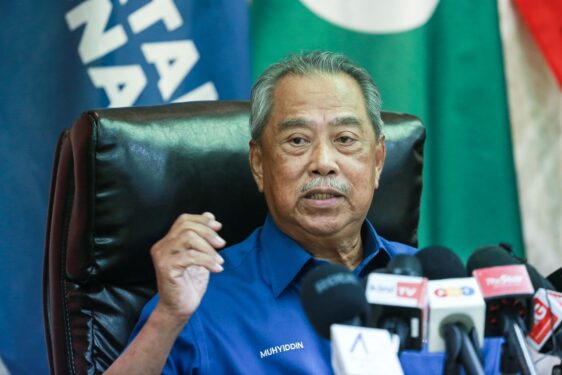By YS Chan
RIGHT on schedule, the Department of Statistics has again released on June 30 the Domestic Tourism Survey report for the preceding year. No surprise that total expenditure by domestic visitors plummeted by 60.8% from RM103.2 bil in 2019 to only RM40.4 bil last year.
Total expenditure comprises spending by both excursionists that made trips to another town or city and returned home on the same day and tourists that stayed overnight away from home at licensed hotels, unlicensed accommodations or private residences of relatives and friends.
Most excursionists drove their own vehicles. They included people staying in Kuala Lumpur and travelled to Pandamaran or Port Klang for seafood. And vice-versa, Klang residents went to Kuala Lumpur for shopping in one of the larger malls or streets lined with traditional shops.
Other excursionists, such as those from the Klang Valley, travelled long distances to cities like Penang, Kuching and Kota Kinabalu for business by taking return flights on the same day. Shorter distances were covered by bus, train or driving their own vehicles.
Those travelling for business and staying overnight at hotels are also termed as tourists. Contrary to popular belief, those travelling for holidays constituted only 10% of all domestic visitors. In fact, those who balik kampung contributed the largest number of domestic tourists.
In 2020, the top five main purposes for trips made by domestic visitors were shopping 42.3%, visiting relatives and friends 32%, holiday, leisure or relaxation 16.9%, medical treatment or wellness 4.2%, and entertainment, events or sports 1.7%.
Before the pandemic, the percentages in 2019 were visiting relatives and friends 42.3%, shopping 35.4%, holiday, leisure or relaxation 9%, entertainment, events or sports 4%, and medical treatment or wellness 4%.
In 2020, the expenditure components were shopping at 52.6%, food and beverage 18.6%, automotive fuel 9%, transportation 6.2%, accommodation 5.2%, visited households 4.4%, other activities 2.9%, and entrance fees, tickets and value packages 1.1%.
For comparison, the percentages for expenditures in 2019 were shopping at 37.8%, automotive fuel 15%, food and beverage 14.3%, visited households 10.2%, accommodation 8.4%, transportation 6.2%, other activities 5%, and entrance fees, tickets and value packages 3.1%.
Last year, the top five states/territory for domestic visitors were Selangor 19.7 million, Perak 13.2 million, Kuala Lumpur 12.4 million, Sabah 10.3 million and Kedah 10.1 million. The numbers for 2019 were Selangor 33.6 million, Kuala Lumpur 22.6 million, Sabah 22 million, Perak 21.1 million and Sarawak 19.8 million.
To the uninitiated, some of the figures may appear to be incorrect as highly popular states for holidays such as Penang and Melaka lost out to Sabah and Kedah. This is because domestic tourism includes both interstate and intrastate travel.
Hence, excursionists travelling from one district to another in Perak, or division in Sabah, without staying overnight away from home are deemed domestic visitors, and their activities and expenditures are included in the Domestic Tourism Survey.
Due to various movement controls introduced last year, the total number of domestic visitors were 131.7 million, a drop of 44.9% compared to the 239.1 million in 2019. The total number of trips made were 147 million, a decrease of 55.8% compared to 332.4 million in 2019.
Over two thirds of people employed in the tourism industry are in the food and beverage sector at 34.7% and retail trade at 32.5%. Coffeeshops, restaurants, eateries and shops cater mainly to local residents and reputable ones attract domestic visitors, while those located along tourist belts draw tourists.
Loosening standard operating procedure (SOP) such as allowing dine-in would give an immediate boost to the food and beverage sector. Likewise, the retail trade would boom if shops were allowed to operate normally again, and restrictions of inter-district travel lifted.
Eventually, people in the country must be permitted to travel freely within Malaysia to allow domestic tourism to flourish once again. We must also make a success of domestic tourism so that our country is deemed safe for foreign visitors. – June 30, 2021
YS Chan is an Asean Tourism Master Trainer for travel agencies and a master trainer for Travel and Tours Enhancement Course and Mesra Malaysia. He is also a tourism and transport industry consultant and writer.
The views expressed are solely of the author and do not necessarily reflect those of Focus Malaysia.
Photo credit: The Malaysian Reserve










